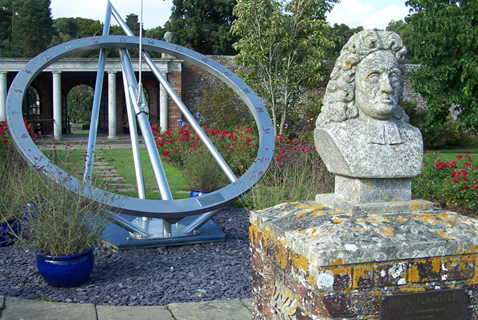Course Instructor: William Joyce - william.joyce@queensu.ca
In Summary:
A non-mathematical introduction to the science of astronomy for non-specialist students. Topics to be covered include the fundamentals of astronomy; and introduction to the tools and techniques of modern observational astronomy; the historical development of our understanding of the Earth, Moon, and Solar System; space exploration of Mars, Jupiter, and other planets; the nature of the Sun; and the origin and uniqueness of our Solar System.
![]()
![]()
Course Highlights: 
-
Study current knowledge of our Solar System and others, using textbook and on-line material, to understand the nature and evolution of such systems, and their place in the wider Universe.
-
Learn about the history of astronomy, by visiting historical sites, to appreciate how astronomical theories have developed.
-
Observe the night sky, using on-site instruments, to master basic astronomical observation.
Course Information:
A non-mathematical introduction to the science of astronomy for non-specialist students. Topics to be covered include the fundamentals of astronomy; and introduction to the tools and techniques of modern observational astronomy; the historical development of our understanding of the Earth, Moon, and Solar System; space exploration of Mars, Jupiter, and other planets; the nature of the Sun; and the origin and uniqueness of our Solar System.
Science and technology have radically changed human culture and our view of the Universe in which we live: so much so, that without some appreciation of science and its origins, we cannot be fully-informed members of modern society. Astronomy provides an excellent example of the scientific method at work, in a field that not only excites the imagination, but also drives beneficial technological innovations (for example in computing, electronics, navigation, and scanner technology).
This course is suitable for any student, but particularly for those without a strong science background, since it is taught mostly descriptively, with only occasional use of basic mathematics. Despite this, the course is not trivial: it conveys a real understanding of the Solar System in particular, and of the Universe in general (since the Solar System cannot be fully comprehended other than in its wider spatial and temporal context).
Learning Outcomes:
- Assess the broad range of tools and techniques used in modern astronomy, by studying course material and doing an essay on a current or already completed robotic space mission, to evaluate how such tools and techniques have enriched our view of the Universe.
- Study the development of life on Earth, using textbook and on-line material, to evaluate the prospects for finding life elsewhere.
- Analyze scientific discourse, by following detailed chains of argument used in astronomy, to enhance skills of critical thinking and logical reasoning.
- Articulate technical terms and scientific concepts, by answering short summary questions in assignments, to practise the acquisition of specialized vocabularies, and their use in clear and concise written explanations.
Experiential and Active Learning Opportunities:
Examples of previous EAL opportunities for this course include a visit to the Observatory Science Centre – now a science education centre, but once an important observatory and research centre, a guest talk by Dr Graham Appleby, the Director of the Space Geodesy Facility near Bader Hall. and a visit to the Royal Observatory, Greenwich, which is rich in the history of astronomy: two particular topics related to Greenwich are the "Longitude Problem" (the problem of measuring longitude at sea (for which see the video clip), and the hunt for the planet Neptune, the existence of which was predicted by Le Verrier in France, and by Adams (who unsuccessfully sought help from Greenwich) in England.
Prerequisites and Exclusions:
Prerequisite: None
Course applicable to the following Majors/Medials/Minors:
PHYS (option) / Con-Ed Teaching Subject (Science-Physics)

